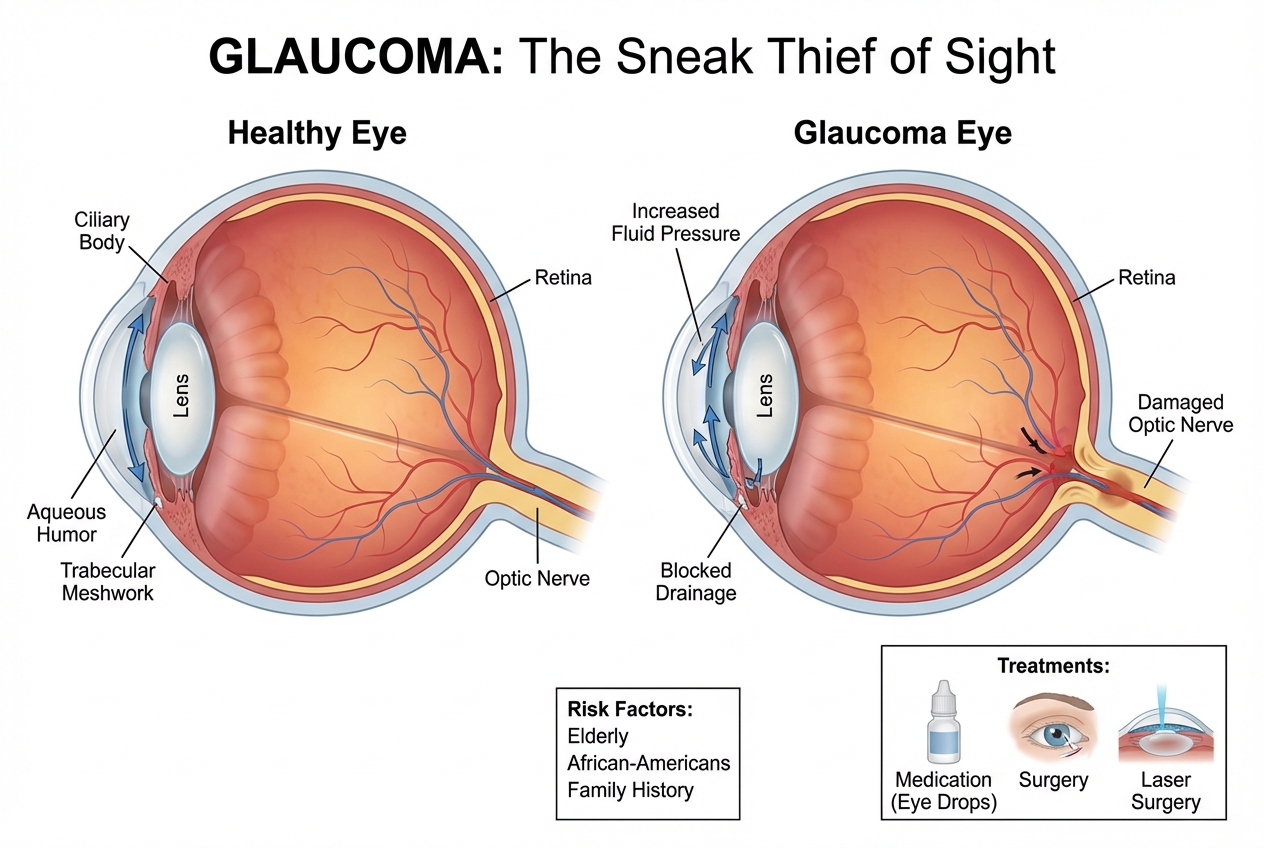
Glaucoma is an eye condition characterized by increased fluid pressure within the eye, which can exceed healthy levels. If left untreated, it may lead to optic nerve damage, resulting in vision loss or even blindness. Those most at risk include the elderly, African-Americans, and individuals with a family history of the condition. In its early stages, glaucoma typically presents no symptoms, earning it the nickname "the sneak thief of sight." By the time vision loss is noticeable, the disease can often only be stopped from progressing further, not reversed.Glaucoma comes in several forms, such as open-angle and acute angle-closure types. Open-angle glaucoma is the most prevalent type among adults, while acute angle-closure glaucoma, though less common, can quickly affect vision.Treatment options for glaucoma include medication, surgery, or laser surgery. While eye drops or pills can usually manage the condition, they cannot cure it. Some medications work by slowing fluid production in the eye, while others enhance fluid drainage. Surgical procedures, including laser surgery, aim to facilitate fluid outflow from the eye. During laser surgery for glaucoma, a laser beam targets the area where fluid exits the eye, creating small changes that ease fluid passage. However, the effects of laser surgery may diminish over time.See also: Acute angle-closure glaucoma, Glaucoma detection, Normal tension glaucoma, Open-angle glaucoma.




